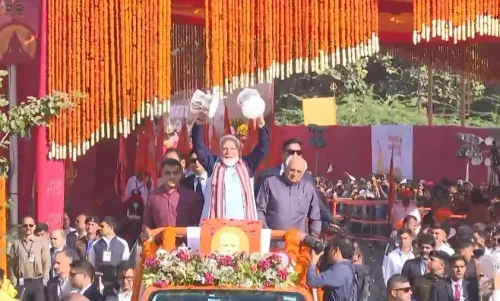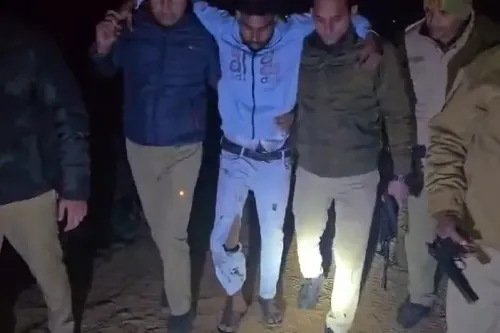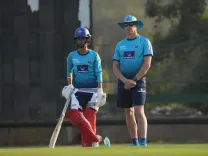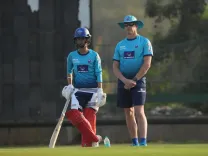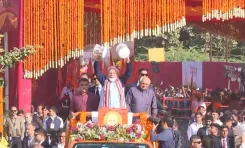Should We Boycott BCCI Team Matches in Support of Kashmir Victims?

Synopsis
Key Takeaways
- Retired army officer calls for a boycott of BCCI matches.
- Appeal is in memory of innocent victims in Kashmir.
- 26 civilians were tragically killed in a terrorist attack.
- Indian armed forces retaliated with targeted strikes.
- Pakistan's aggression led to destruction of military bases.
Srinagar, Sep 10 (NationPress) A retired senior army officer, who has a history of service in Kashmir, is urging citizens to refrain from watching the BCCI team matches as a mark of respect for the innocent Indians who were murdered in cold blood in the Baisaran meadow of Kashmir.
Lt. General KJS Dhillon (retired), a former GoC of the Army’s Srinagar-based Chinar Corps, expressed on X, “If you are viewing @BCCI team’s matches... Please reflect on the innocent Indians who were brutally killed at Pahalgam and those soldiers who sacrificed their lives battling Pakistani terrorists, enabling you to enjoy these matches in peace at home. Just a thought, please. I am boycotting the Asia Cup. Are you? Jai Hind.”
On April 22, terrorists from the Pakistan-backed Lashkar-e-Taiba (LeT) took the lives of 26 innocent civilians in Pahalgam’s Baisaran meadow. Among the deceased were 25 tourists and a local Ponywallah.
This heinous act of terror shocked the nation. Prime Minister Narendra Modi authorized the armed forces to retaliate against the perpetrators of the Pahalgam attack.
In response, the Indian armed forces executed targeted strikes on terror infrastructures located in Pakistan-occupied Kashmir (PoK), specifically in Muridke near Lahore and Bahawalpur.
These operations, named ‘Operation Sindoor’, resulted in the destruction of 12 terror infrastructures.
In retaliation, Pakistan escalated its aggression by targeting both civilian and military installations, prompting the Indian army to demolish 18 military bases within Pakistan.
Since their last bilateral series in 2012-13, cricketing relations between India and Pakistan have been frozen due to political tensions and security issues, with their encounters now limited to ICC and ACC events that continue to draw significant global audiences.


